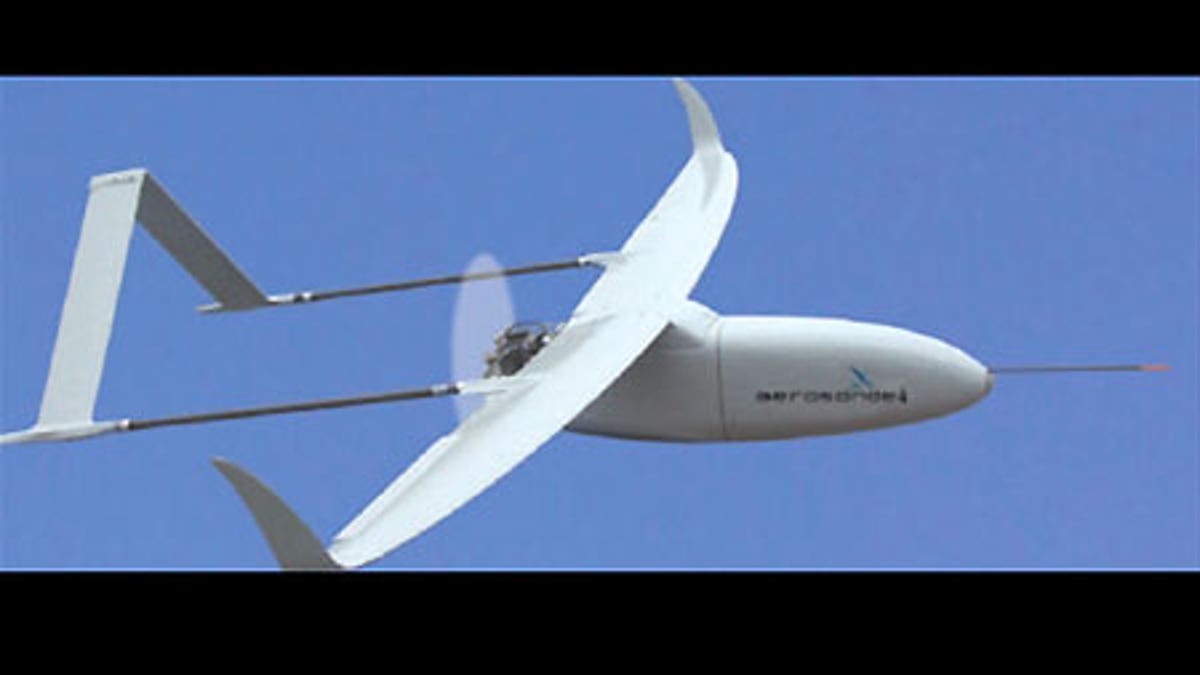
Kansas State's Aerosonde unmanned aerial vehicle. (Kansas State Collegian)
Imagine a fire, a flood, a tornado.
Just hours later, a small unmanned aircraft buzzes around above, using infrared technology to search for signs of life in the destroyed homes and schools.
It signals relief teams, sending them straight to those buried under the debris in time to save more lives, faster.
At Kansas State University-Salina, technology like this is moving rapidly toward reality.
The Federal Aviation Administration has issued a certificate of authorization to the campus to fly the Aerosonde, an unmanned aerial vehicle, over Crisis City, an emergency response training area near Salina.
Crisis City was previously off-limits to K-State aviation because it was unrestricted public airspace, said Josh Brungardt, Unmanned Aircraft Systems (UAS) program manager at K-State-Salina.
"That's what K-State's really concentrated on; this is a stepping stone," he said. "Now it gives us the ability to apply for emergency certificates of authorization for different locations."
Brungardt said the aircraft has a video camera onboard linked to an operating system on the ground, which will be housed in a remodeled building on the Salina campus.
The remodel should be completed by the end of August. The building will also contain labs, classrooms and highly advanced aviation technology for students' use.
The equipment is provided by Flint Hills Solutions, an advanced technology and services company that focuses on the UAS market, said Dennis Kuhlman, dean of K-State-Salina. The university has partnered with FHS, which employs many K-State-Salina alumni.
"Students will be exposed to a level of technology they would normally not be able to touch," Kuhlman said. "When we need to expose students, they can work with Flint Hills, that's what makes partnerships so strong."
Though the UAS program started at K-State-Salina just more than a year ago, Eric Shappee, associate professor of aviation, said it has grown significantly and could possibly be a degree program in the next few years.
Right now it is a certificate program and only offers online classes for students.
Shappee said K-State-Salina is the only aviation school in the country to offer a UAS program with access to such sophisticated technology.
"Some people say, 'It's the cutting edge,'" Shappee said. "But we're so close, I like to call it the 'bleeding edge.'"
Brungardt said search-and-rescue planes are a significant development for the industry, and Salina graduates will be first in line for jobs when they complete their training in the new program.
"This is basically a lot of the future of aviation," Brungardt said. "We hope to pave the ground for creating job opportunities for our students."
This story originally appeared in the Kansas State Collegian.
